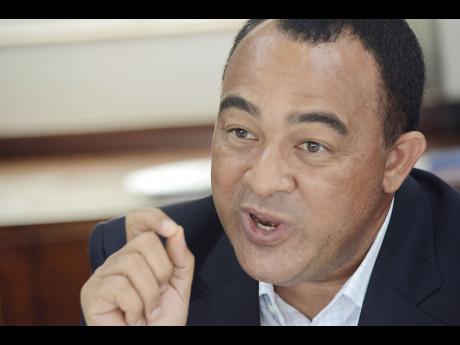Stakeholders share what is needed to fight the zika epidemic
At a recent Gleaner Editors' Forum examining Jamaica's management of the zika virus epidemic, medical professionals and stakeholders shared opinions and suggestions regarding what they would like to see done in tackling the outbreak of the mosquito-borne disease that is spreading across the island, with now over 5,000 suspected cases and approximately 100 confirmed.
Dr Christopher Tufton — Minister of Health: The fight against zika is a collective effort, and personal responsibility is a key part of that. I commend all the stakeholders who have played an important role in sensitising the public and responding to this fight, in many instances under adverse circumstances.
Elaine Foster-Allen — permanent secretary, Ministry of Health: We need to urgently do something about taking personal responsibility in this fight. I also want to thank the staff for what they are doing; they have been working tremendously hard.
Dr Myrton Smith — president of Medical Association of Jamaica: I must applaud the team approach to the response so far and I hope that the team continues to expand, both through pulling in people who are already established and training new people to get on board not just for zika but for other things that might come in the future.
Dawn-Marie Richards — public health nurse and executive member of the Nurses Association of Jamaica: More personal responsibility needs to be taken by individuals in how they treat their environment.
Dr Nadine Johnson — obstetrician and gynaecologist specialising in maternal-foetal medicine: Two words — vector control.
Nathalee McMorris — microbiologist: I would like a positive response to the sensitisation programmes being carried out.
Dr Karen Webster-Kerr — national epidemiologist: We need to implement the systems that are necessary to monitor what is happening with zika.
Dr Lundie Richards — director of health service planning and integration, Ministry of Health: It is important that we recognise the tremendous effort of workers in the field.
Dr Sonia Copeland — director of health promotion and protection unit, Ministry of Health: I am eagerly looking forward to engaging our children because they are the next generation and they are very good animators in terms of health and what we need to do.
Dr Jacqueline Bisasor-McKenzie — director of emergency medical services, Ministry of Health: I would like to see the media get more involved in helping us to spread the word, especially to reach those women who are still getting pregnant with no concern at all about zika, and especially those 16, 17 and 18-year-olds who are getting pregnant.
Sherine Huntley-Jones — medical entomologist: I would like all of us, not just the Ministry of Health, to reinforce the message about personal responsibility. It is also important that we make the proper linkage between the breeding of this vector and the occurrence. Too often in the media I and seeing a story regarding zika and they cut to a drain or groundwater, which suggests that we have not made the proper linkage.
Dr Shane Alexis — board member of the National Health Fund: Fund the fight. We have to put health as a priority the same way we economic growth is placed on the table. We have to tackle the financing of our health sector, restructuring the entire sector so that when we are tested by zika, or by whatever the next illness is, we are in a position to respond.












